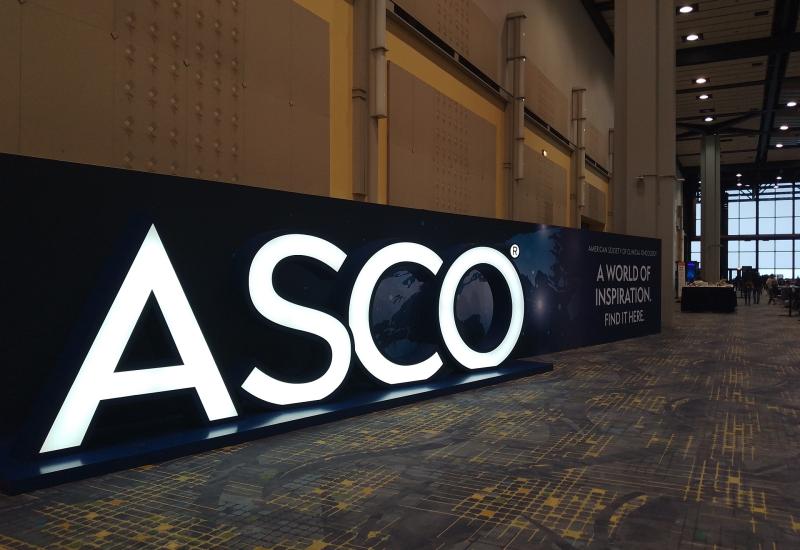
Another TIGIT bites the dust
GSK and iTeos dump belrestotug, with the latter now looking at “strategic alternatives”.
GSK and iTeos dump belrestotug, with the latter now looking at “strategic alternatives”.

After disappointments with various anti-TIGIT MAbs, iTeos's GSK-partnered belrestotug was one of the few assets in this class still in late-stage development – but no longer. The groups threw in the towel on Tuesday after the failure of the phase 2 Galaxies Lung-201 trial on its secondary progression-free survival endpoint.
A mid-stage head and neck cancer study, Galaxies H&N-202, also fell short on overall response rates with belrestotug combos versus Jemperli monotherapy, the partners said. This has left iTeos exploring “strategic alternatives”, and made GSK look premature for beginning the phase 3 Galaxies Lung-301 study last year.
Far off Galaxies
Galaxies Lung-201 and 301 concern the same setting: first-line, PD-L1-high NSCLC. GSK started the pivotal trial last June after Galaxies Lung-201 showed an improvement on its primary endpoint of ORR with belrestotug plus Jemperli versus Jemperli alone.
However, this came at a toxicity cost, last year’s ESMO meeting heard. And Galaxies Lung-201 also included a Keytruda arm, data from which haven’t yet been released – which is relevant because the comparator in Galaxies Lung-301 is Keytruda, not Jemperli.
On Tuesday, however, the partners didn’t mention the Keytruda cohort, only saying that the latest interim analysis didn’t show a clinically meaningful improvement in PFS with belrestotug plus Jemperli, versus Jemperli alone.
The companies will terminate belrestotug, end the collaboration, and halt enrolment into Galaxies Lung-301. Shares in iTeos, which had been trading well below cash, closed up 13% as investors apparently welcomed the ending of a project in which they'd lost faith some time ago.
Pipeline
This leaves iTeos with two early-stage projects in its pipeline: the ENT1 inhibitor EOS-984 and the anti-TREM2 MAb EOS-215, both in phase 1. In December the company discontinued its A2AR antagonist inupadenant following results from the phase 2 A2A-005 trial.
As for TIGIT, this is only the latest blow to this mechanism: last month Roche slipped out the failure of yet another study of its troubled tiragolumab, Skyscraper-07, following last year’s disappointment with its big first-line NSCLC trial, Skyscraper-01.
Also in April, BeiGene gave up on its contender, ociperlimab.
While two phase 3 trials of tiragolumab have yet to report (Skyscraper-03 and 14), realistically the only late-stage TIGIT-targeting programmes left standing are Arcus and Gilead’s domvanalimab and AstraZeneca’s rilvegostomig; the latter is an anti-TIGIT x PD-1 bispecific MAb.
The first phase 3 readout with domvanalimab will come from the Star-221 trial, in combination with the PD-1 inhibitor zimberelimab, in first-line gastric cancers. Data are due in 2026.
Meanwhile, Astra is now the most heavily invested company in TIGIT, with nine phase 3 trials of rilvegostomig under way, although readout of these looks some way off.
Notable trials of belrestotug
| Trial | Setting | Regimen | Primary endpoint | Note |
|---|---|---|---|---|
| Ph2 Galaxies Lung-201 | 1st-line NSCLC (PD-L1 high) | Belrestotug + Jemperli, vs Jemperli | ORR | ORR improvement at ESMO 2024; no meaningful improvement in PFS, as per May 2025 update |
| Ph2 Galaxies H&N-202 | 1st-line head & neck cancer (PD-L1+ve) | Various, incl. belrestotug + Jemperli, vs Jemperli | ORR | “Trend below the meaningful threshold for ORR” as per May 2025 update |
| Ph3 Galaxies Lung-301 | 1st-line NSCLC (PD-L1 high) | Belrestotug + Jemperli, vs Keytruda | PFS, OS | Began Jun 2024; enrolment stopped as per May 2025 update |
Source: OncologyPipeline.
2426













